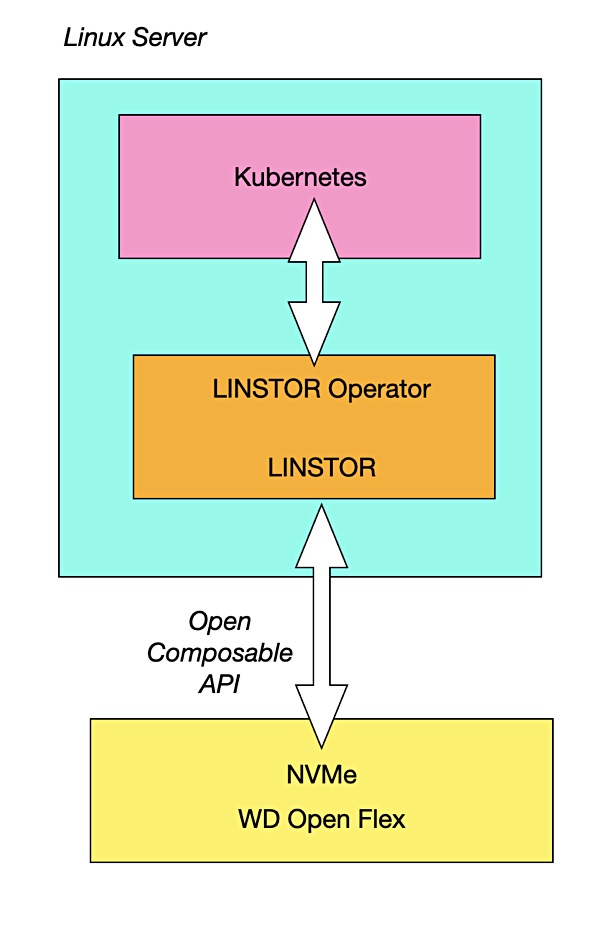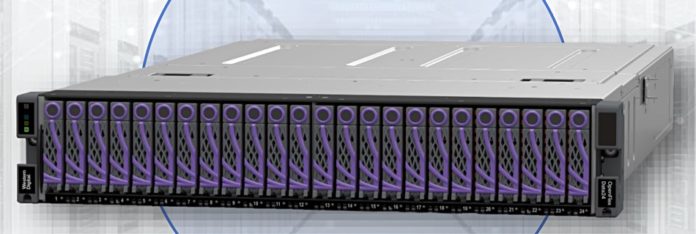Western Digital’s composable OpenFlex flash storage system now supports Kubernetes storage, courtesy of Linbit’s LINSTOR software.
OpenFlex is a physical chassis, containing SSDs or disk drives, which is addressed as an NVMe target device. It’s basically an NVMe-oF JBOD (Just a bunch of drives) and needs additional software to link it to containerised environments.
Manfred Berger, WD’s senior manager for business development, platforms, said in a statement: “With Linbit’s LINSTOR software added to our OpenFlex offering, the software-defined-storage solution combines the advantages of SDS systems, Linux OS features and composable hardware so that organisations have the confidence they need in their Kubernetes environments.”
Philipp Reisner, Linbit CEO, said: “With the open-source LINSTOR we bridge the gap between the workload orchestrator (Kubernetes) and the efficient OpenFlex storage devices from Western Digital. In combination delivering high-performance block storage at a very attractive price point.”

LINSTOR is configuration management system for storage on Linux systems. The software use the Linux LVM tool to manage logical volumes and/or ZFS ZVOLs on a cluster of nodes. Linbit has developed a Distributed Replicated Block Device (DRBD) storage construct for Linux and LINSTOR uses this to provide block storage devices to users and applications.
LINSTOR sees WD’s OpenFlex Composable Infrastructure as an NVMe-accessed storage pool from which it can allocate space to DRBD. OpenFlex has a REST Open Composable API which is used by LINSTOR to do this.
That’s the downstream aspect sorted. On the upstream side there is a LINSTOR Operator to deliver DRBD capacity to Kubernetes. It installs DRBD in Kubernetes environments, thus linking OpenFlex and Kubernetes, and manages Kubernetes satellite and controller pods.








